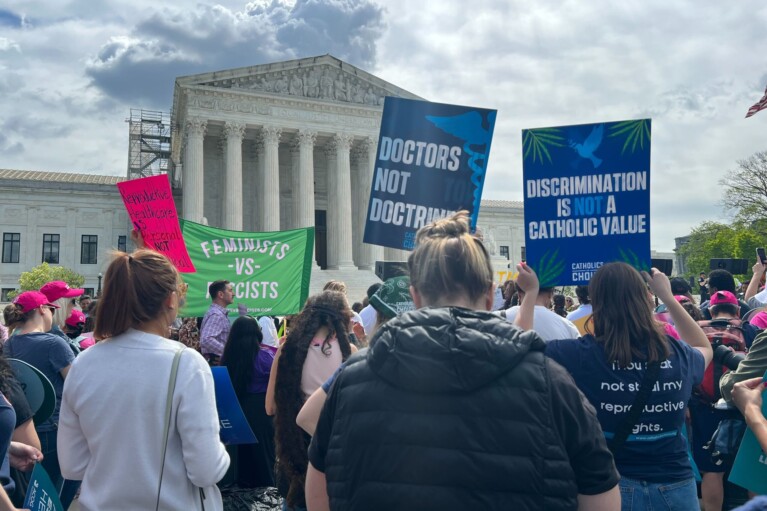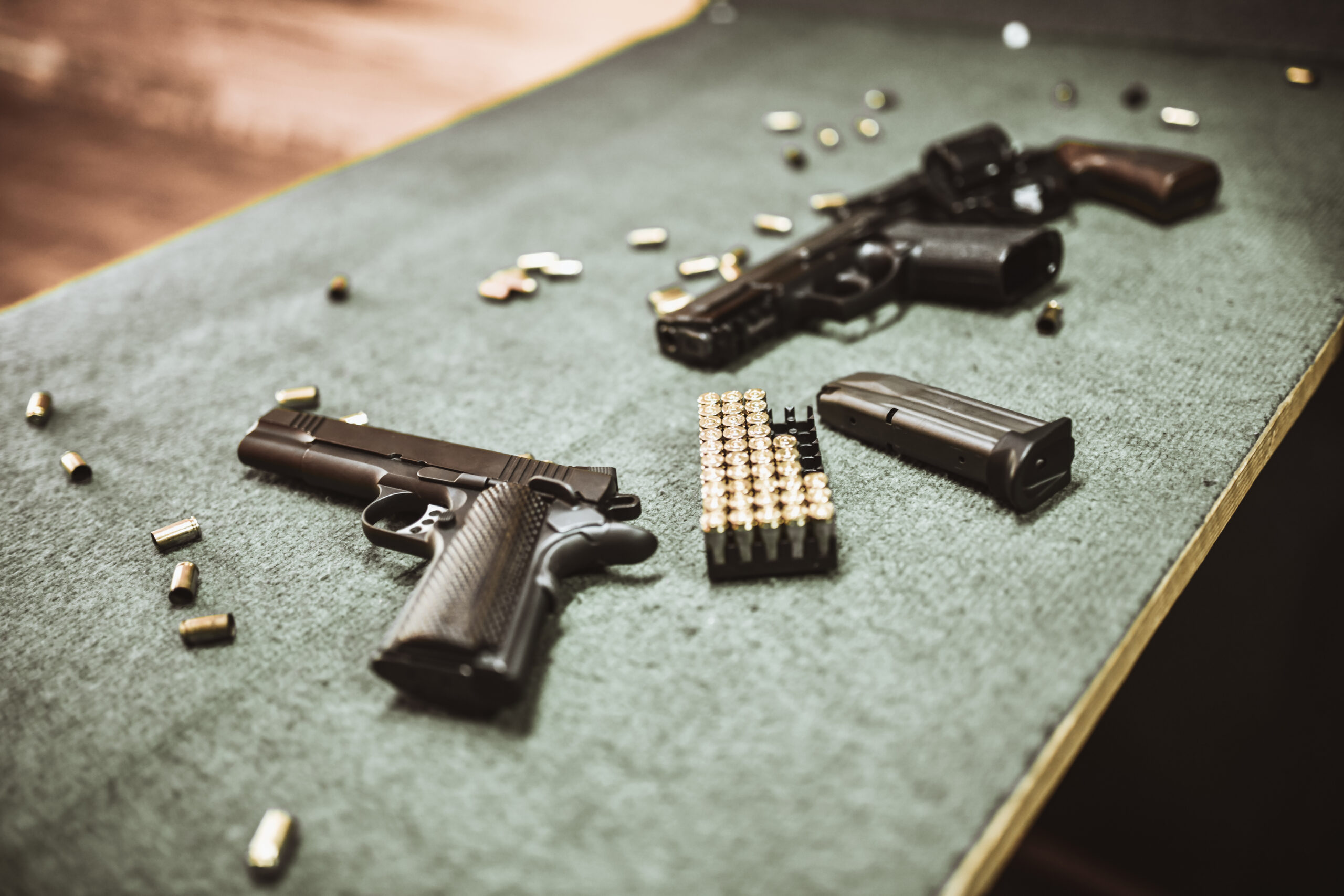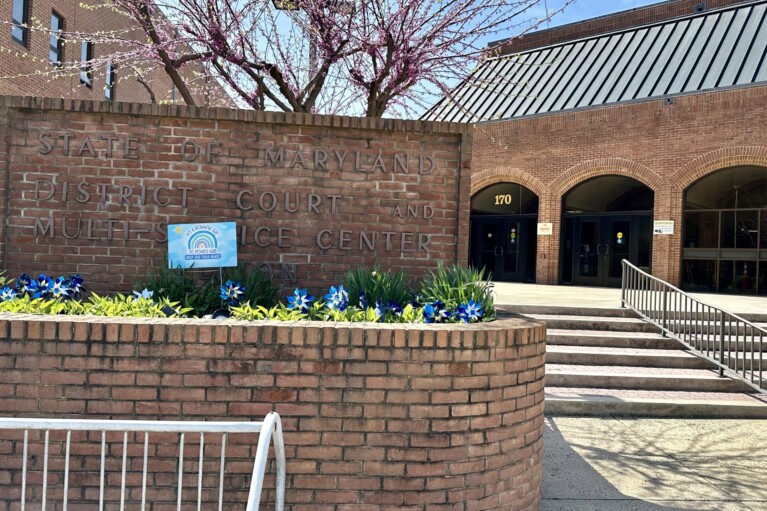Unions, Corrections Staff Fret About Spread of Virus in Md. Prisons

Union officials representing correctional officers and other frontline employees in prisons across Maryland are sounding the alarm about inadequate protections for staff and inmates against COVID-19.
American Federation of State, County and Municipal Employees (AFSCME) Maryland Council 3 President Patrick Moran said Sunday that social distancing protocols among inmates basically do not exist. At the same time, he said, staff are expected to act as medical care professionals with little to no training and screening processes appear to be inconsistent.
“Our members are very frustrated about this,” Moran said. “They’re worried because they’re in a confined environment.”
On Saturday, a prison guard at Eastern Correctional Institute in Somerset County said her body temperature was taken for the first time at work since the first case of COVID-19 was confirmed in the state on March 5. Friday was the first time she was asked to complete a health questionnaire to gain entry into a building.
“The warden had to get the thermometers on Friday,” said Sgt. Rownite Stevens. “On Saturday and Sunday they took my temperature, but no questionnaire.”
She said Monday was the first day guards were asked to keep six feet away from colleagues when entering or exiting the gatehouse, which staff is required to pass through for shifts.
“The signs went up today about social distancing,” Stevens said. “If there was to be a breakout of coronavirus, what is the protocol? We have no knowledge of it.”
Moran said he has spoken to several correctional officers across the state.
“The governor said no groups of more than 10 people, yet they’re still feeding groups of 250 to 300 inmates at a time,” Moran said. “They’re at these little round tables with four people at each table and three feet away is another table. They’re all waiting in line to get their food and moving en masse from their wing unit to the chow hall.”
While the state has made some provisions to mitigate large group gatherings among inmates, those changes seem to fall short of what Gov. Lawrence J. Hogan Jr. (R) is requiring of the rest of the state.
Stevens said at Eastern, group sizes have decreased from 96 to 48 when inmates go outside for recreation. For dining, inmates now have to eat in their cells. But in both instances, Stevens said social distancing largely is not being practiced.
“They’re not six feet apart,” Stevens said of inmates when they move from their cells to other areas of the prison. “They’re just walking and talking. Nobody’s keeping their distance. . . The whole unit goes to lunch at the same time. That’s 150 to 160 people on each side of the dining hall.”
In a previous statement, officials from the Department of Public Safety and Correctional Services said every effort is being made to educate inmates, visitors, and staff about the precautionary efforts being made to reduce transmission of any communicable illness within state prisons.
Standards guidelines for prison personnel and inmates were established at the beginning of the onset of the coronavirus by state officials. They include washing hands often with soap and warm water for 20 seconds, covering coughs and sneezes with a tissue, sleeve or elbow, avoid touching your eyes, nose and mouth, cleaning and disinfecting frequently touched objects and surfaces, avoiding close contact with people who are sick, and for guards only, using alcohol-based hand sanitizer with at least 60% alcohol if soap and water is not available.
Kimberly Haven, a criminal justice advocate and former Maryland inmate of six years, said correctional officers and inmates are scared.
“They’re reaching out and saying shine a light on this,” Haven said. “The staff are coming into an environment that is like a Petri dish, working shifts and going home. They are taking something in or taking something home.”
Haven said inmates contact her regularly. Last week a prisoner at the Maryland Correctional Institution for Women, in Anne Arundel County, said inmates were concerned because they were having a hard time accessing cleaning supplies.
“They can’t have hand sanitizer because it’s alcohol,” Haven said. “The non alcohol option is not available. You have to buy your own soap in commissary — is the state making them pay for soap?”
A spokesman for the Public Safety department did not respond to requests for comment for this article seeking current prison policies and data on sick patients in the system. Previous requests to interview prison wardens were also declined, as were requests for detailed examples showing how the state plans to mitigate the spread of the COVID-19 in prisons.
As of Friday, there were no cases of coronavirus in the state prison, according to Public Safety department spokesman Mark Vernarelli.
Hogan ordered all non-essential businesses in the state to close on Monday by 5 p.m., hoping to further curtail the spread of the coronavirus across the state. As of Monday morning there were 288 confirmed cases in the state.
“If we don’t have tests in the free world, you know they’re not testing on the inside — like they should be,” Haven said. “While everyone is afraid — it’s heightened in prison. You can’t control it. The medical care already sucks. They are correctional afterthoughts — the inmates and the staff.”
Glynis Kazanjian is a freelance writer. She can be reached at [email protected].



 Creative Commons Attribution
Creative Commons Attribution